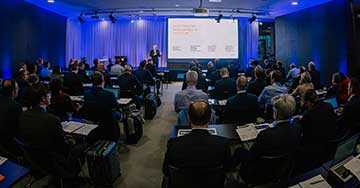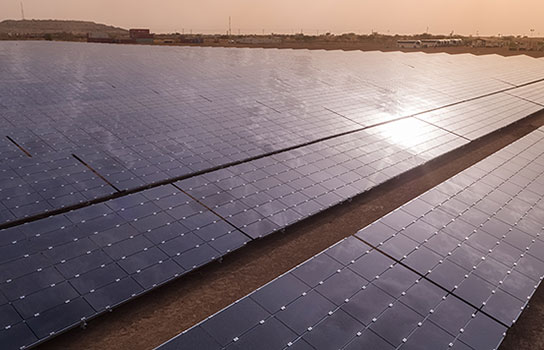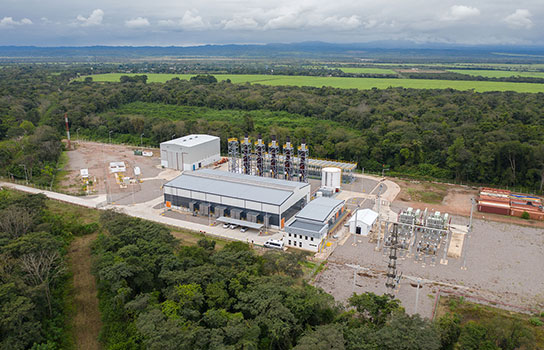
About Energy

About Wärtsilä




The global energy landscape is in transition towards more flexible and sustainable energy systems. As the cost of renewables continues to decline, the number of new investments into coal-fired plants and other inflexible baseload technologies is decreasing. Vietnam has emerged as the hotspot for clean energy investment within Southeast Asia, driven by solar developments with cumulative installations expected to reach more than 5 GW in 2020.
Currently, Vietnam’s power system is facing various challenges: lack of an adequate supply of electricity to meet growing demand, environmental pollution, and delays in large thermal power plant projects. As the share of renewable energy (RE) will continue to increase, Vietnam’s power system will face new challenges in maintaining system reliability, resilience, and stability. Without adequate and detailed planning, the overall cost of generation may increase, despite the addition of lower cost RE.

Vietnam power system study carried out by the Institute of Energy (IE) under the Ministry of Trade and Industry (MOIT) introduces a sustainable, reliable, and affordable power generation technology, the Internal Combustion Engine (ICE). ICE-based power plants can be built quickly and will enable integration of solar and wind power without risking the power system reliability and stability.
-power-plants-in-vietnam-s-power-system.jpg?sfvrsn=73328344_10)
An ICE can reach 100% capacity within just 2 minutes, can quickly be ramped up and down, and can be shut down and restarted without any operational penalties. This ability saves fuel, wear-and-tear as well as emissions, since running the engines idle is not necessary. ICE-based power plants are different than conventional thermal power plants using Steam & Gas Turbines. These contemporary combustion engine plants provide ultimate flexibility with high efficiency, harnessing gaseous, liquid or biofuels. These plants can operate on baseload, provide peaking power, and also provide grid stability services.
The analysis in the study is carried out using powerful modelling tools, such as BALMOREL, PDPAT and PLEXOS. The study has focused on the role of flexible power generation and the use of ICEs in Vietnam’s future power system. The objective of the study is to optimize the future power system in Vietnam with the lowest total system cost, while maintaining system stability and reducing emissions.
The highly flexible ICE technology is expected to play an important role in Vietnam’s future energy mix and enable the country to transform into a high-renewables system
- Mr. Tran Ky Phuc, Director of Vietnam Institute of Energy
The power system study recommends adding internal combustion engine (ICE) power plants from 2022 onwards into Vietnam’s power system. The ICE power plants need to be built in the South with a total capacity of 650 MW during 2022-2023. These ICE power plants will support the high energy demand by 2025, especially as Vietnam is expected to experience delays in the delivery of some coal and CCGT power projects in the South. Additionally, drought conditions could create a risk of power shortage in the country.
In the long-term, the needed capacity of flexible ICE power plants to provide reserve capacity, supply peak demand, and balance the renewable generation in the grid will be 2.5 GW in 2030, 10.6 GW in 2040 and 13.4 GW in 2050. With ICEs in the system, total system cost will be reduced by 180 million USD/year in 2030, and similar savings can be achieved in the future years by building more ICE power plants.

The growing share of renewable energy in Vietnam’s power system will require flexible ICE power plants to ensure system reliability, resilience and stability
- Thanh Pham, Vietnam Country Manager, Wärtsilä Energy Business
The need for flexible internal combustion engine (ICE) power plants and their applications in Vietnam’s future power system
The need for flexible internal combustion engine (ICE) power plants and their applications in Vietnam’s future power system
Future-proof, flexible engine power plants to integrate renewable energy in Vietnam
Thanh Pham
Managing Director & Business Development Manager, Energy
Mobile: +84 93 23 23 119
Email: thanh.pham@wartsila.com
Wärtsilä Vietnam Co., Ltd. (Energy)
5th Floor, Leadvisors Place Building
41A Ly Thai To, Ly Thai To Ward
Hoan Kiem District, Hanoi